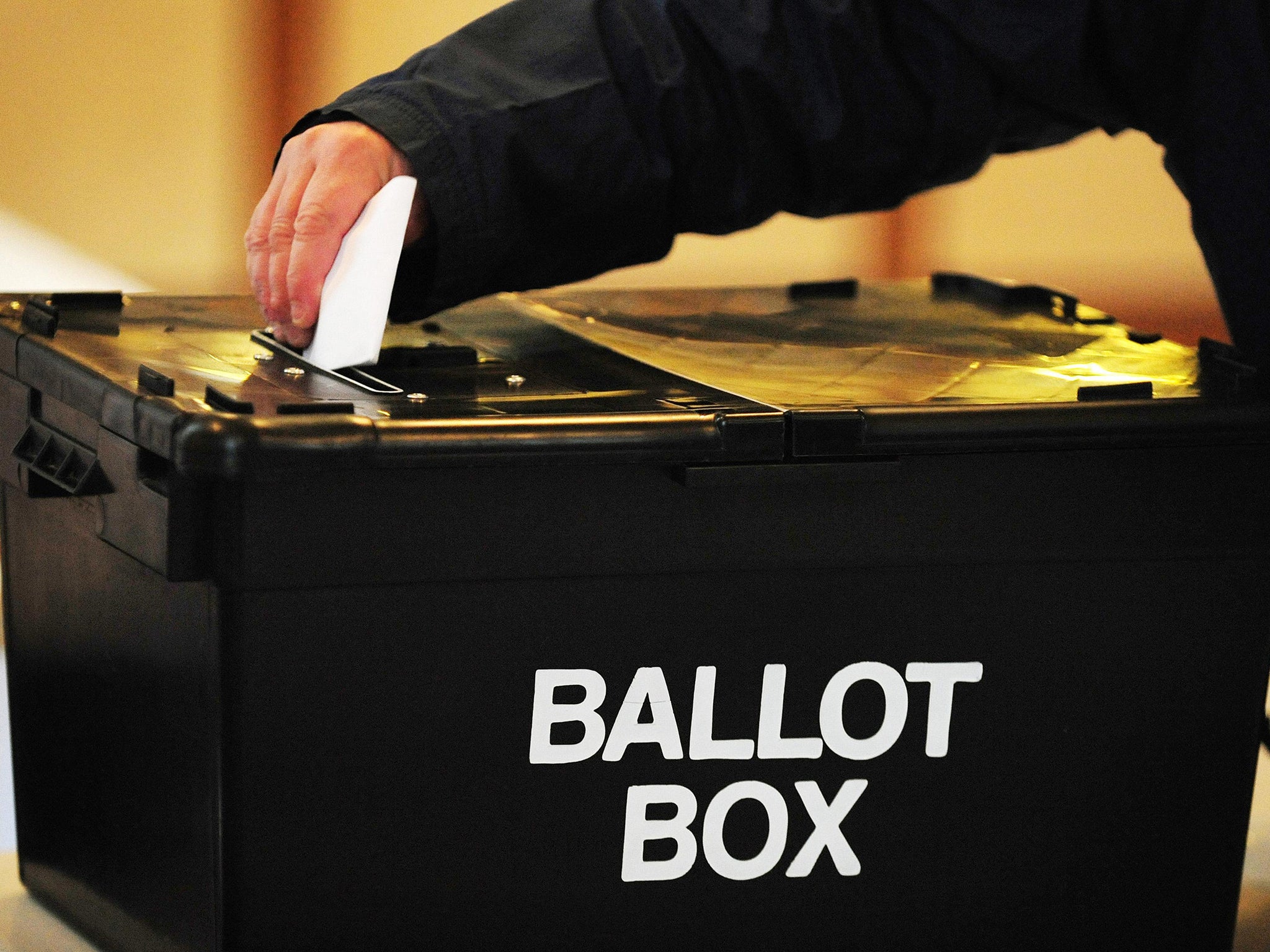EU referendum: Brexit voters more likely to turn out in force, poll finds
Poll finds attitudes have hardened against British EU membership since Cameron’s deal with fellow leaders

Your support helps us to tell the story
From reproductive rights to climate change to Big Tech, The Independent is on the ground when the story is developing. Whether it's investigating the financials of Elon Musk's pro-Trump PAC or producing our latest documentary, 'The A Word', which shines a light on the American women fighting for reproductive rights, we know how important it is to parse out the facts from the messaging.
At such a critical moment in US history, we need reporters on the ground. Your donation allows us to keep sending journalists to speak to both sides of the story.
The Independent is trusted by Americans across the entire political spectrum. And unlike many other quality news outlets, we choose not to lock Americans out of our reporting and analysis with paywalls. We believe quality journalism should be available to everyone, paid for by those who can afford it.
Your support makes all the difference.The campaign for Britain to leave the EU enjoys an eight-point lead when people’s likelihood to vote is taken into account, according to a poll for The Independent.
ORB’s findings are a blow to David Cameron, and confirm his allies’ fears that people who want to withdraw from the EU are more likely to vote in the June referendum – a factor that could prove decisive. They suggest that opinion has hardened against EU membership since the Prime Minister agreed a “new settlement” with fellow EU leaders a week ago.
Some 52 per cent of people said they would vote to leave, with 48 per cent saying they would back remaining, the exact opposite of last month’s findings. People were also asked how likely they were to vote in the June referendum on a scale of one to 10. When the figures were weighted, with a 10/10 score given a full percentage point and 9/10 given 0.9 of a point, the Leave total went up to 54 per cent and Remain fell to 46 per cent.
Men are more likely to vote than women. Some 85 per cent of those aged 65 or over said they would definitely vote (10/10), compared to 53 per cent of 18-24 year-olds. Only 34 per cent of the oldest age group said Britain should remain in the EU, with 66 per cent saying it should leave. In contrast, 70 per cent of 18-24 year-olds wanted Britain to stay and only 30 per cent believed it should quit.
Scotland appears more engaged in the EU debate than other parts of Britain, with 78 per cent of Scots saying they would definitely vote, higher than the overall 69 per cent figure.
ORB, which questioned 2,000 people on 24 and 25 February, found that Boris Johnson’s decision to support Brexit made one in four people (26 per cent) more likely to vote to leave, a significant figure, while 60 per cent disagreed. More people (48 per cent) agreed with the Mayor of London’s statement that “the only way to get the change we need with the EU” is to vote to leave, than disagreed (37 per cent). This suggests that voters might be open to the idea, floated by Mr Johnson, of voting Out in June in the hope of forcing the EU to concede a better deal for Britain before a second referendum. A majority of people who voted Conservative at last year’s election (54 per cent) agreed that the only way to secure the necessary change is to vote to leave.
After intense media coverage since the Brussels summit, one in three people (32 per cent) said they felt more inclined in the past week to leave,while one in four (24 per cent) were more inclined to remain. Mr Cameron appears not to winning round Tory supporters, a key target. Some 34 per cent of them were now more inclined to withdraw and 24 per cent to stay. But 31 per cent of Labour supporters, another important group, were more inclined to remain and 29 per cent to quit. Mr Johnson’s decision has made three in 10 Tory voters (29 per cent) more likely to vote to leave.
There are a few rays of hope for the Prime Minister. More people (50 per cent) believed the economy is a bigger issue than immigration when considering how to vote in the referendum than disagree with this statement (35 per cent). Mr Cameron’s main message, that “Britain will be safer, stronger and better off in a reformed EU,” was supported by 44 per cent, while 39 per cent disagreed. But Tory voters are evenly divided on the issue.
Some 81 per cent thought that leaving the EU would pose a risk, but the figure has not increased since last month (82 per cent) despite the Remain camp’s warnings.
Referendum: The week in focus
After the intense media coverage of the past week, 24 per cent say they are more inclined to Remain and 32 per cent to Leave.
Boris effect: 26 per cent say his decision has made them more likely to vote to Leave, while 60 per cent disagree.
Forty-eight per cent agree with Mr Johnson’s statement that “the only way to get the change we need with the EU is to vote to leave”; 37 per cent disagree.
Fifty per cent say economy is bigger issue than immigration; 35 per cent disagree.
Eighty-two per cent see some risk in leaving EU.
Subscribe to Independent Premium to bookmark this article
Want to bookmark your favourite articles and stories to read or reference later? Start your Independent Premium subscription today.
Join our commenting forum
Join thought-provoking conversations, follow other Independent readers and see their replies
Comments